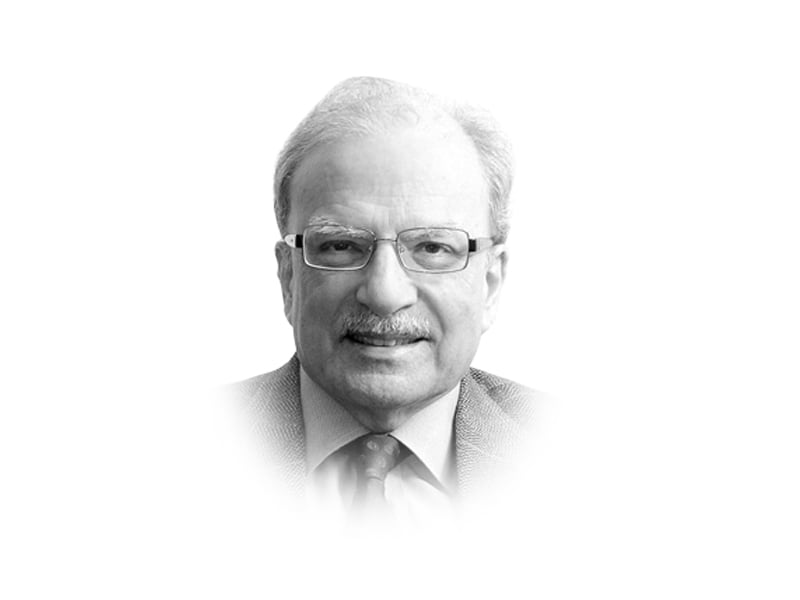
I have funded an institution that works in the area of public policy. The institution is based in Lahore, and it produces a report every year which begins with an analysis of the economic situation faced by the country at the time the report is written. We then follow it up with in-depth analysis of a subject studied by us in detail. To take three examples from recent years: our analyses of the China-Pakistan Economic Corridor investment programme; global warming and its consequences for Pakistan; and the role of women in developing the country.
A few years ago, we wrote on the subject of CPEC, presenting our view on the benefits that would accrue to the two countries from the multi-billion-dollar programme of infrastructure development in which Beijing was making investments. I presented the conclusions we had reached in the report at a well-attended briefing session held in Islamabad. Among those present was the then China’s ambassador to Pakistan. After the presentation was over, he walked over to me and said it was the best analysis of CPEC he had read. It was timely since some in the Pakistani media had begun to question China’s intention of making such large investments in Pakistan. He had sent the report to Beijing where it was translated and read with a great deal of interest. The Chinese authorities would build on the strengths of the programme of investment and deal with the problems we had identified. He then asked me what was the reaction of the officials in Pakistan to the findings in our report. I couldn’t answer the question since I was not sure if there were people in the government who had bothered to read the report.
The second question which we have turned our attention to is global warming. I once had a conversation with a senior Pakistani official who was visiting Washington to discuss the areas in which the United States and his country could have a productive engagement. He was the guest of honour at a small dinner given by Pakistan’s ambassador to Washington. At one point the visitor turned to me and asked what I would tell the Americans if I was engaged in the dialogue. I suggested that he should impress upon the US government Pakistan’s urgent need to deal with the problems created by global warming. Pakistan would benefit from both American financial support and technical assistance. His response surprised me. “What has Pakistan to do global warming,” he said. “It is their problem, not ours.” I asked him if he had read the report issued by the World Bank a few years ago according to which Pakistan would be one of the most adversely affected countries from global warming. That would happen because of the more than normal melting of the ice cover in the Himalayas and the Hindu Kush Mountain ranges. They were the sources of water that flowed into the rivers of Pakistan. The more rapid melting of ice in the summer months would mean devastating floods and intense rainfall of the type seen by the country in the summer of 2022. After the ice cover had been thinned, the amount of water flowing into the rivers would decline. Since Pakistan’s agriculture depended on the canal system that had been developed over more than a century to tap the water flowing through the Indus River system, a serious reduction in the amount of water in the system would result in the country becoming arid. The World Bank report had suggested the construction of a dozen storage reservoirs that would save the large flow of water from causing floods. The Bank called this system “cascades” and estimated the amount of money that would be needed to construct the system and I had suggested to the visiting official to ask Washington for helping in building it.
The third policy area to which we have attempted to draw the attention of the policymakers is the contribution women could make to Pakistan’s economic development and social improvement. That was the subject of the report issued by the Burki Institute in 2022. As the World Bank has pointed out in some of its reports, Pakistan today is one of the more socially backward countries. This is the result not only of the low level of economic progress, it is also because practically no attention has been paid to the social and economic improvement in the state of women in the country. It is wrong to blame religion for this situation. It is not going to help the Pakistani women from the way the Taliban in the neighbouring Afghanistan are using religion to push back the social and economic improvement of their women. In the article by me that appeared in this space last week, I pointed out that the policymakers in India have weakened the status of women in their country. That was one reason why India was not likely to achieve the status to which it aspires in the global system.
Last time I was in Pakistan was in late winter and early spring of 2023, my institute arranged for me to address a number of audiences. The people who attended my talks included students, people from the government and businesspersons. In the question-and-answer sessions that followed my talks, it became clear that most of those who heard me had done very little reading on Pakistan. This experience reminded me of the long conversation I once had with Sartaj Aziz who was then the Vice Chancellor of the Beaconhouse National University, the BNU. He had held a several senior positions in the government before retiring from public service. He was once a senior official in the Planning Commission which had been downgraded by Prime Minister Zulfikar Ali Bhutto who strongly believed that his gut served him well in deciding what the government should be doing. His successors did little to rebuild the Commission. Aziz thought that he and I should join hands and establish a private sector policy institution. Initial funding came from BNU but once Aziz left Lahore for Islamabad, my family and I filled the financial gap which is the reason why the institution now carries the Burki name. We have been able to provide financial assistance for the institution but have not succeeded in getting the government to read what we write.
Published in The Express Tribune, June 19th, 2023.
Like Opinion & Editorial on Facebook, follow @ETOpEd on Twitter to receive all updates on all our daily pieces.




1732256278-0/ellen-(1)1732256278-0-165x106.webp)
1725877703-0/Tribune-Pic-(5)1725877703-0-165x106.webp)







COMMENTS (2)
Comments are moderated and generally will be posted if they are on-topic and not abusive.
For more information, please see our Comments FAQ